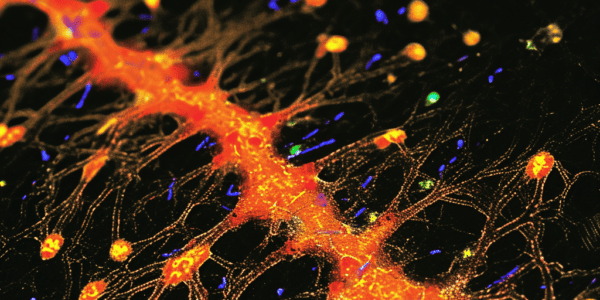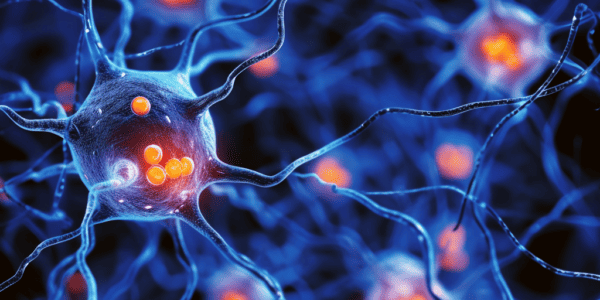Breakthrough Study Reveals Widespread Metabolic Diversity of Endosymbionts
A groundbreaking study by the Max Planck Institute reveals the metabolic diversity of endosymbionts, particularly a newly discovered bacterium, ‘Candidatus Azoamicus ciliaticola,’ which uses nitrate respiration. This research uncovers the widespread presence of these organisms across various environments, including freshwater lakes, groundwater, and wastewater, highlighting their ecological significance and adaptability. The findings emphasize the importance of microbial diversity in ecosystem health and open new avenues for understanding microbial interactions and their roles in biogeochemical cycles.
New Study Reveals Insights into Mitochondrial DNA Inheritance and Potential of Vitamin K2 in Treatment
A groundbreaking study from the University of Colorado Boulder reveals new insights into mitochondrial DNA inheritance, emphasizing the critical role of maternal transmission and the elimination of paternal mitochondria. This research sheds light on the mechanisms behind mitochondrial disorders and suggests that Vitamin K2 may offer therapeutic potential for those affected. Discover how these findings could transform our understanding of cellular energy production and mitochondrial health.
New Research Uncovers Metabolic Disruptions in Parkinson’s Disease
Recent research from Fujita Health University reveals significant metabolic disruptions in Parkinson’s disease, particularly in purine metabolism and ATP recycling. The study highlights lower uric acid levels in PD patients, suggesting a complex relationship influenced by factors like sex and age. These findings pave the way for innovative therapeutic strategies aimed at enhancing energy metabolism, potentially improving the quality of life for those affected by Parkinson’s disease.
Texas A&M Researchers Unveil Nanotechnology to Combat Aging and Enhance Mitochondrial Function
Researchers at Texas A&M University have developed innovative MoS₂ nanoflowers to combat aging and related diseases by enhancing mitochondrial function. This groundbreaking approach aims to improve cellular energy production and offers new treatment options for conditions like diabetes and neurodegenerative disorders, marking a significant advancement in regenerative medicine.
Mitochondrial DNA Dynamics: Key to Health and Longevity Insights
Recent research reveals significant insights into mitochondrial DNA (mtDNA) dynamics and its implications for human health and longevity. A study published on BioRxiv explores how mtDNA insertions in human brain cells correlate with earlier mortality, highlighting the potential impact of mitochondrial function on lifespan and health outcomes. Understanding these mechanisms may pave the way for innovative therapeutic strategies targeting age-related diseases.
Enhanced Mitochondrial Fusion and Nerve Cell Function
Recent research from the University of Cologne’s CECAD Cluster of Excellence in Aging Research highlights the role of enhanced mitochondrial fusion in fueling nerve cell function and plasticity. The study has significant implications for brain repair approaches during disease and offers new avenues for potential therapeutic interventions in neurological disorders.
New Approach to Regenerative Therapy for Heart Failure
Groundbreaking research from Hokkaido University reveals a new approach to regenerative therapy for heart failure. Activating the mitochondria of regenerative cells prior to treatment significantly enhances the effectiveness of cell transplantation therapy for heart healing. The study, led by Professor Yuma Yamada, demonstrates the potential of this innovative approach to improve cardiac function and suppress myocardial fibrosis.
New Cancer Treatment Identifies Patients Likely to Respond to Cancer Drugs
Cancer treatment could identify patients most likely to respond to cancer drugs by Jen Brogan | 1st Feb 2024 | News Tumours with high mtDNA mutations more likely to respond to Opdivo Scientists from the Cancer Research UK Scotland Institute…
Researchers Discover Connection Between ALS Progression and Mitochondria-Associated Membranes
Researchers at Nagoya University in Japan have made a significant discovery in the study of amyotrophic lateral sclerosis (ALS), also known as Lou Gehrig’s disease. Their research, published in the Proceedings of the National Academy of Sciences, has revealed a…
Naturally Occurring Variant of SHLP2 May Offer Protection Against Parkinson’s Disease, Study Finds
Researchers have identified a naturally occurring variant of SHLP2 that may offer protection against Parkinson’s disease (PD). The study, published in Molecular Psychiatry, delves into the functional role of a mitochondrial DNA single nucleotide polymorphism (mtSNP) associated with reduced PD…










